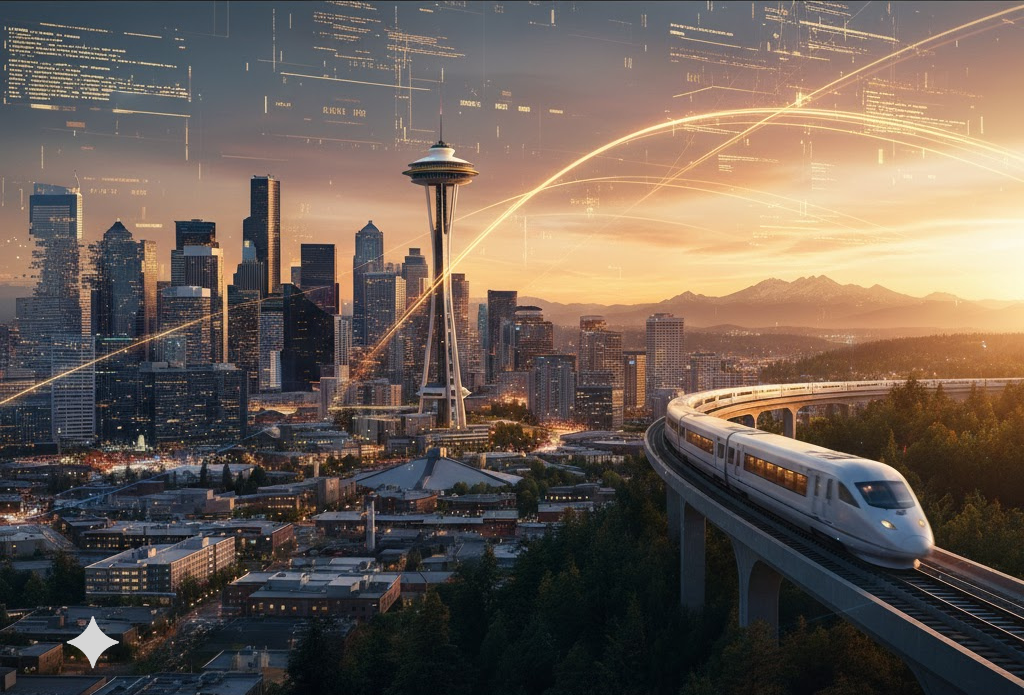Amazon’s Mass Layoffs Amid the AI Boom: Contradiction or Strategy?
In a surprising move that has sent ripples through the tech industry, Amazon announced plans to lay off approximately 14,000 employees—a significant reduction in workforce occurring paradoxically during what many consider an artificial intelligence boom. This contradiction presents a fascinating case study of corporate strategy in the modern tech landscape, raising questions about the true nature of today’s AI revolution and whether we’re witnessing genuine innovation or merely another tech bubble inflating before our eyes. Amazon CEO Andy Jassy framed the decision through his “world’s largest startup” philosophy, suggesting that even a trillion-dollar company must maintain the agility and efficiency of smaller enterprises to thrive in rapidly evolving markets. The layoffs come despite Amazon reporting strong earnings, further complicating the narrative around these workforce reductions and their timing.
The juxtaposition of Amazon’s cuts against Microsoft’s continued growth in the AI space—particularly through its Azure cloud platform and deepening relationship with OpenAI—highlights divergent approaches to navigating the current technological transition. While Amazon trims its workforce across various divisions, Microsoft is doubling down on AI investments, recruiting talent, and expanding infrastructure to support what it sees as a transformative technological wave. These contrasting strategies from two of Seattle’s tech giants reflect fundamental differences in how these companies evaluate AI’s potential return on investment and timeline for profitability. The scenario playing out in the Pacific Northwest tech hub raises important questions: Is Amazon being prudently cautious in a time of potential tech exuberance, or is it missing a crucial inflection point in technological advancement? Conversely, is Microsoft positioning itself at the forefront of a genuine revolution, or overcommitting to what might prove to be incremental improvements dressed in revolutionary rhetoric?
Beyond corporate strategy, these workforce decisions reflect deeper philosophical perspectives on artificial intelligence itself. The debate around whether current AI advancements represent true technological transformation or merely incremental improvements with excellent marketing echoes similar conversations during previous tech cycles. Skeptics point to the gap between AI’s impressive demonstrations and its measurable impact on productivity and revenue, suggesting that companies may be overvaluing potential against practical returns. Optimists counter that we’re in the early stages of a fundamental shift in how technology interacts with human work and creativity, requiring significant investment before revealing its full economic impact. This tension between immediate financial discipline and long-term technological positioning defines the difficult balancing act facing tech executives today.
The regional impact of these corporate decisions extends beyond individual companies to shape the future of Seattle and the broader Pacific Northwest tech ecosystem. As Amazon contracts and restructures, questions arise about the region’s continued ability to attract and retain tech talent, particularly as remote work opens more geographical options for skilled professionals. The layoffs might signal a maturation of Seattle’s tech industry, moving from explosive growth to a more measured approach focused on efficiency and sustainable development. This transition creates both challenges and opportunities for the regional economy, potentially opening space for new startups and mid-sized companies to access talent previously locked into the largest tech employers. How Seattle navigates this period of adjustment will significantly influence its long-term position in the global technology landscape.
Against this backdrop of corporate recalibration, the Pacific Northwest is simultaneously contemplating an ambitious infrastructure project that could reshape its economic future: the Cascadia high-speed rail initiative. This visionary proposal would connect Portland, Seattle, and Vancouver, B.C., with bullet train service, potentially transforming these separate urban centers into a more cohesive economic mega-region. Proponents argue that such infrastructure is essential for the next chapter of Pacific Northwest growth, creating a more integrated talent pool and business ecosystem that could compete more effectively with other global tech hubs. Critics question whether the enormous investment required justifies the benefits, especially as remote work changes the nature of regional employment and collaboration. The rail project represents a bet on a future where physical connectivity remains crucial despite digital advancements—a philosophical position that itself connects to broader questions about how technology will shape work and regional development.
The contradictions evident in Amazon’s layoffs during an AI boom reflect larger tensions in today’s tech industry: between efficiency and innovation, between quarterly performance and long-term positioning, between the promise of emerging technologies and their current practical value. As companies like Amazon and Microsoft make different bets on artificial intelligence’s trajectory, they shape not only their corporate futures but also the development of Seattle’s tech ecosystem and the broader Pacific Northwest region. These decisions unfold against a background of ambitious infrastructure planning that assumes continued regional growth and integration. Whether we’re witnessing the prudent management of resources during a period of technological hype or companies missing a genuine inflection point in technological evolution remains to be seen. What’s certain is that these strategic choices will reverberate beyond corporate balance sheets to influence how and where technology develops in the coming decades, with significant implications for workers, communities, and the future of work itself.













